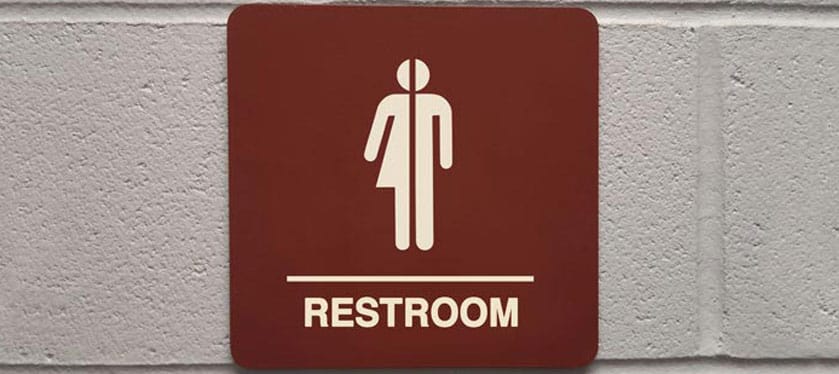Supreme Court to Hear Transgender School Bathroom Rights Case in March

The U.S. Supreme Court announced that it will hear arguments in a major dispute on transgender rights on March 28, 2017. Gloucester County School Board v. GG (Case No. 16-273) is a case filed by the American Civil Liberties Union (ACLU) on behalf of Gavin Grimm, a transgender male student at Gloucester High School in Virginia. Gavin is challenging a school board policy that requires students to use the restrooms that match their “biological sex” (the gender they were assigned at birth), or to use one of a number of gender neutral bathrooms on campus. Gavin is arguing that the school’s bathroom policy, which segregates transgender students from their peers by requiring them to use “alternative, private” restroom facilities, is unconstitutional and also violates a federal law that prohibits sex discrimination by schools. transgender-sign-se-5793
During his sophomore year, Gavin’s mother notified the Gloucester High School principal that Gavin was transitioning to a boy and requested permission for him to start using the boys’ restroom at school. The principal granted Gavin permission to do so and he used the boys’ bathroom for two months without issue. In the Fall of 2014, the school began to receive complaints from parents and residents of Gloucester County. In response, the school board adopted a policy which required students to use the restrooms that match their biological sex or to use the gender neutral bathrooms on campus.
Gavin filed a motion asking for the court to allow him to continue using the boys’ restroom for his junior year. The district court ruled against Gavin and found that federal law permitted schools to have separate restroom facilities for male and females based on “sex.” Therefore, by requiring Gavin to use the restroom consistent with his “sex,” which is female in the school district’s eye, the court found that the school district did not violate the law. Gavin appealed this decision. On appeal, the U.S. Court of Appeals in the Fourth Circuit ruled in favor of Gavin by deferring to a U.S. Department of Education opinion letter from 2015, which stated that if schools separate students in restrooms on the basis of their sex, the school must treat transgender students consistent with their gender identity rather than their biological sex.
Following this decision, the United States Supreme Court voted to temporarily stay the Fourth Circuit’s ruling while it considered an appeal from the Gloucester County School Board. As such, Gavin continues to be barred from using the boys’ bathroom unless and until the Supreme Court rules in his favor.
This is one of the most high-profile cases the Supreme Court has agreed to hear since Justice Antonin Scalia passed away in February 2016. The date of the oral argument in this case is significant because the composition of the Supreme Court may change by then. If a Supreme Court nominee is approved before March 28th, the case will be decided by a full court and it is likely that a predominantly conservative Court will vote to allow the school board’s policy to stand. However, if a Supreme Court nominee is not confirmed by the time the Court hears the case, there will likely be a split between the current eight justices. Without a ninth vote, the 4-4 ruling would leave in place the decision of the Fourth Circuit requiring schools to treat transgender students consistent with their gender identity rather than their biological sex. However, a split decision would only be binding on courts in the Fourth Circuit (Maryland, North Carolina, South Carolina, Virginia and West Virginia). It is also possible that the Supreme Court would elect to rehear the case once a Supreme Court nominee is confirmed.
The Supreme Court’s decision in this case will have a significant impact on the rights of transgender individuals across the country. Our Education Lawyers, who handle matters dealing with discrimination in schools, will continue to monitor this important case and comment on any significant developments.





